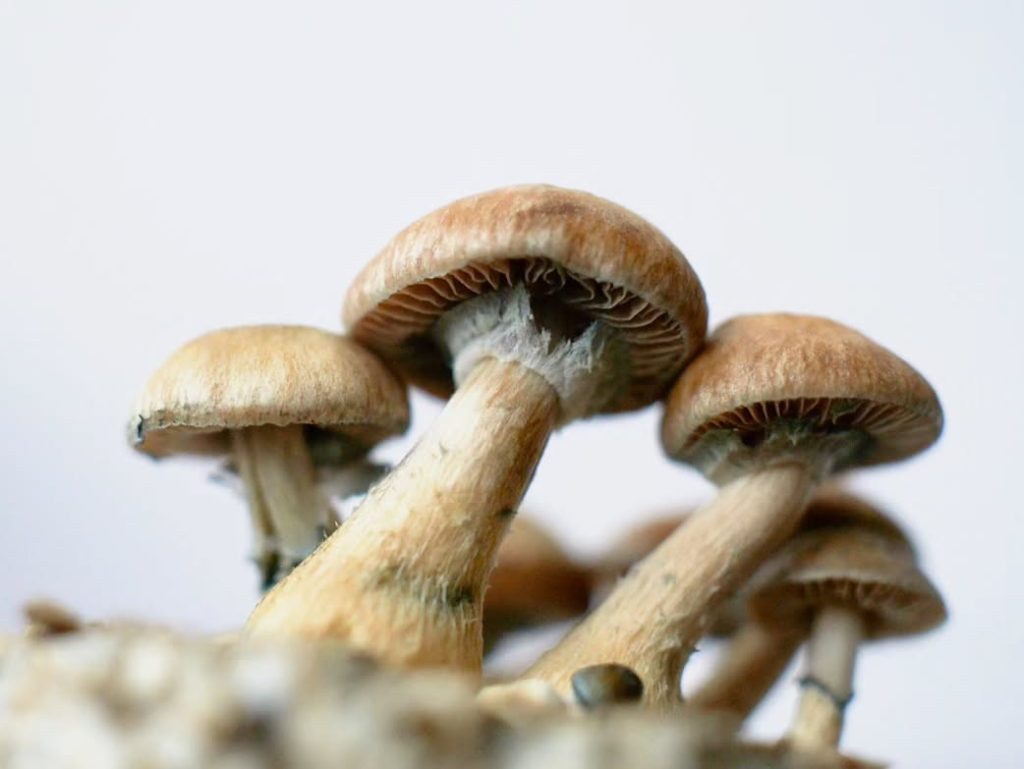Oregon’s Psychedelic U-Turn: Cities Push Back on Psilocybin Legalization Amid Growing Skepticism.
Once heralded as a pioneer in drug policy reform, Oregon is now witnessing a growing backlash against its groundbreaking psilocybin program. In 2020, the state made history as the first in the U.S. to legalize the therapeutic use of psilocybin, the active ingredient in psychedelic mushrooms. Yet, just four years later, an increasing number of cities have chosen to ban the federally prohibited compound, citing concerns over public safety and policy outcomes.
An increasing number of cities in Oregon have opted to prohibit the psychedelic mushroom compound psilocybin. Drug reform advocates once regarded Oregon as a trailblazer when it became the first state in the United States to legalize the therapeutic application of psilocybin, the active ingredient in psychedelic mushrooms. However, four years later, a growing number of its cities have enacted bans on the substance.

In the recent election held on November 5, four cities, including those in the suburbs of Portland as well as rural and coastal areas, implemented new voter-approved restrictions on this federally prohibited compound. Additionally, a dozen other communities that had previously established two-year moratoriums in 2022—when a majority of Oregon counties and over 100 cities voted to temporarily or permanently restrict psilocybin—chose to make these restrictions permanent in this election.
In light of the ongoing fentanyl crisis, the recent rejection of drug liberalization initiatives in Oregon and other states has led some experts to speculate whether voters are reassessing their support for such policies. For instance, in Massachusetts, voters turned down a proposal that would have permitted individuals over the age of 21 to cultivate and utilize plant-based psychedelic substances under specific conditions. Furthermore, all three states that had measures to legalize recreational marijuana voted against them. Notably, Oregon voters seem to have become disillusioned with drug reform.
Latest: Supreme Court Greenlights Massive Multibillion-Dollar Class Action Lawsuit Against Meta
A law that was passed by voters four years ago, which decriminalized the possession of small quantities of hard drugs such as heroin and methamphetamine, was recently reversed by the state legislature following intense discussions regarding its potential contribution to an increase in public drug use and fatalities.
Amanda Feilding, director of the Beckley Foundation, advocates for the integration of psychedelics into therapeutic practices: "We’re depriving millions of people of a better life by not making use of what has been known throughout history... These are tools to heal, to treat, to get to another level."
Despite local prohibitions, psilocybin is still available at more than 30 licensed facilities located in the state's largest cities, such as Portland, as well as in several smaller towns. Additionally, some rural counties have chosen to remain part of the program. However, the accessibility of therapeutic psilocybin is hindered by significant costs, with a single session potentially reaching up to $2,000 out of pocket.
This high price is primarily due to the necessity for center owners and facilitators to transfer licensure costs to consumers in order to maintain their operations. In 2020, approximately 56% of Oregon voters endorsed Measure 109, which permitted the production and regulated therapeutic application of psilocybin at licensed establishments for individuals aged 21 and older. However, the measure also allowed counties and cities to opt out, leading to a fragmented regulatory landscape throughout the state.
Complicating matters further, some cities have opted to permit psilocybin use even in counties that have prohibited it, as cities govern the land within their boundaries while counties oversee unincorporated areas. This regulatory fragmentation mirrors the situation seen in cannabis legislation. In half of the 24 states that have legalized recreational cannabis, including Oregon, local jurisdictions have the option to exclude various types of cannabis businesses, as noted by Kate Bryan, a policy expert on criminal and civil justice at the National Conference of State Legislatures.
Insight: 900 Days Without Anabel: The Harrowing Tale of Spain’s Longest Missing Persons Case
In 2022, Colorado became the second state to legalize psilocybin for therapeutic purposes. According to a spokesperson from the state's natural medicine division, the acceptance of license applications for "healing centers" will commence at the end of December. The legislation permits local jurisdictions to establish specific regulations governing the operation of these centers, although it prohibits them from completely banning such facilities.
Numerous cities nationwide have also opted to decriminalize psilocybin, which means individuals cannot be arrested or prosecuted for possessing limited quantities of these plant-derived hallucinogens. Psilocybin, which is present in various mushroom species, can induce prolonged and vivid hallucinations. Indigenous cultures have historically utilized it in healing ceremonies, and researchers are investigating its potential to treat conditions such as depression, addiction, and post-traumatic stress disorder. Advocacy for the therapeutic exploration of this substance has come from both researchers and military veterans.
Rick Doblin, Ph.D., founder and president of the Multidisciplinary Association for Psychedelic Studies (MAPS), has been a pivotal figure in advocating for the therapeutic use of psychedelics, including psilocybin, to address mental health conditions such as anxiety and depression. He emphasizes that psychedelics are not a substitute for faith but rather a means to encounter the sacred dimension of everyday experience, potentially leading to authentic faith.
Doblin acknowledges the challenges in integrating psychedelics into mainstream culture, noting that this process won't happen overnight. He suggests that the first step is for individuals with knowledge of these substances to share their experiences openly, promoting honest drug education that presents a balanced view of risks and benefits.
In his TED Talk, "The Future of Psychedelic-Assisted Therapy," Doblin discusses the potential of psychedelics like psilocybin to revolutionize mental health treatment. He highlights the importance of rigorous, systematic research to validate the safety and efficacy of these substances in therapeutic settings.
Through his work with MAPS, Doblin has been instrumental in advancing clinical trials and research studies aimed at understanding how psychedelics can be safely and effectively integrated into therapeutic practices. His advocacy continues to influence the evolving landscape of mental health treatment, offering hope for new approaches to conditions like anxiety and depression.





















